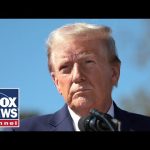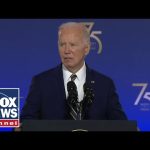In recent discussions about U.S. foreign policy, a substantial focus has shifted toward the handling of hostages in Gaza and the imminent return of Donald Trump to the presidency. The notion is that, under Trump’s leadership, American hostages held by Hamas may finally see release. Trump’s stance has been decidedly clear: any harm done to Americans will not go unanswered. The message from Trump and his team is that those who take Americans hostage will face significant repercussions. After years of leniency, it seems the strategy may now be about to change drastically, with a clear signal that there will be “all hell to pay” for terrorists if hostages are not freed.
This forthcoming administration aims to present a firm front against groups like Hamas. The chatter surrounding a tougher stance has stirred optimism among many supporters. In the past, too many enemies of America have found a lucrative business model in hostage-taking, leading to a belief that they could get away unscathed. However, it appears that under Trump, those miscalculations will be addressed, likely with a swift and decisive approach that includes military strength and strong diplomacy.
China has also been brought into the conversation with its growing influence impacting foreign affairs. Under Joe Biden, relations with China have been marred by claims of cozying up to their leaders, especially during controversies surrounding his son, Hunter Biden. However, Trump’s team promises a very different approach; the idea is to ensure that American interests are prioritized and not placed on the back burner. Trump’s incoming National Security Adviser, Mike Waltz—a former Green Beret—aims to bring a no-nonsense approach to dealing with authoritarian regimes. The idea is simple: America will no longer be pushed around by hostile powers.
Another critical area of concern is the Panama Canal, a vital trade route that has reportedly come under the influence of China over the years. Adding a touch of humor to an otherwise serious situation, one might wonder how many people even knew there was a problem at the canal until now. Nevertheless, Trump is making it clear that the U.S. will not accept exorbitant prices charged by Chinese-controlled ports at both ends of the canal—after all, 75% of the commerce there is American. If it means taking back control, Trump is prepared to do what it takes to ensure that American interests are upheld.
Now, let’s not forget about Greenland, which has resurfaced as a hot topic in discussions. Trump argues that the strategic importance of Greenland has reached new levels, especially in light of increased Chinese activity in the region. The U.S. must defend its interests in Greenland and the Arctic; if Denmark cannot fulfill its obligations, then why not make an offer? The message is clear: the era of the U.S. defending foreign nations without requiring compensation may be over.
Overall, the growing conversations around foreign policy show a clear shift toward a more assertive U.S. stance in global affairs. With an eye firmly fixed on hostages, China, and strategic locations like the Panama Canal, the incoming Trump administration is ready to set a bold tone. While many have talked a big game in the past, it seems Trump intends to operate with firm resolve, ensuring that America no longer plays the role of a global pushover. For supporters, this could be a welcome change as they anticipate a future where American interests are put first and foremost.




